Russia plans to withdraw from the Arctic Council, along with China, accuses the US of "causing chaos" in the Middle East, a helicopter crashes on the Mexican border, the Russian President is about to visit Türkiye, France summons the Moscow Ambassador in Paris... are some notable international news in the past 24 hours.
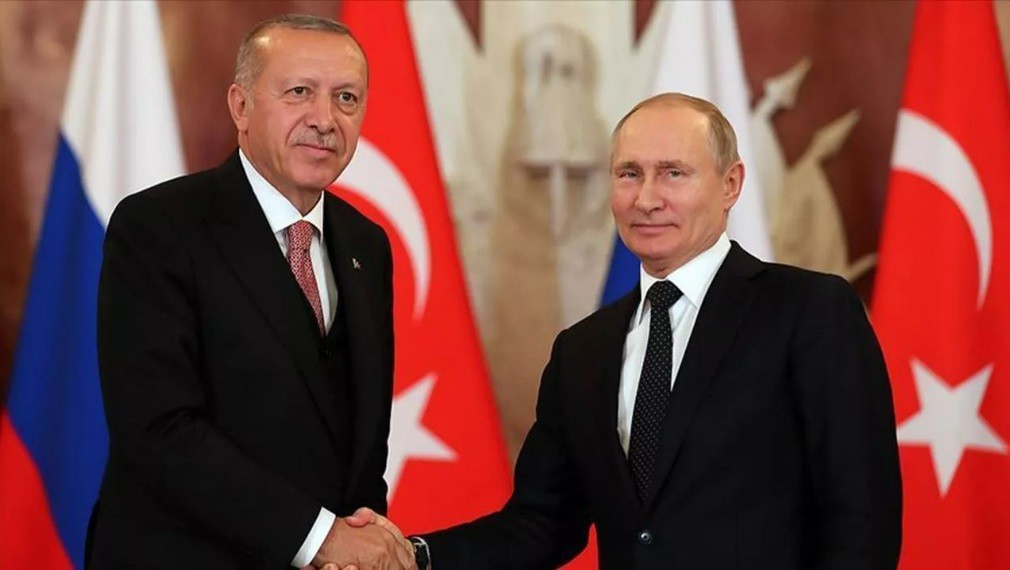 |
| Russian President Vladimir Putin and Turkish President Recep Tayyip Erdoğan. (Source: Hürriyet Daily News) |
The World & Vietnam Newspaper highlights some of the day's international news highlights.
Russia – Ukraine
*Russia expands “iron dome” against UAVs: Russia is expanding its radar positioning field to control low-altitude unmanned aerial vehicles (UAVs), especially in risky directions.
The “Iron Dome” will be much larger than before the special military operation, and will be more densely fortified in the areas at risk, said Dmitry Savitski, deputy director of the Almaz-Altei arms manufacturer. The system will also include vehicles specifically designed to operate in the new conditions.
The Russian capital Moscow is currently protected by radar positioning equipment manufactured by Almaz-Altei. (TASS)
*France summons Russian ambassador over aid worker deaths in Ukraine: The Russian Foreign Ministry said on February 5 that the French Foreign Ministry earlier that day summoned Russian Ambassador to Paris Alexey Meshkov over the deaths of two French aid workers last week in Ukraine.
Tensions between Moscow and Paris have increased in recent days, with the Russian government criticizing France over its announcement of arms deliveries to Ukraine.
The Russian Foreign Ministry also accused France of transferring “more and more lethal and destructive weapons” to Ukraine, and protested against “France’s unprecedented deep intervention in the conflict in Ukraine”.
Earlier, the French Foreign Ministry said on February 2 that two French aid workers were killed and three other French citizens were injured on February 1 in an attack on Beryslav. (AFP)
Asia-Pacific
*US spy plane monitors North Korea: Aviation trackers said a US reconnaissance plane flew over South Korea on February 6 in a move believed to be monitoring North Korean activities.
The US Air Force RC-135U fighter jet was spotted flying over the Yellow Sea, the northern provinces of Kyunggi and Gangwon in South Korea, and the East Sea after taking off from Kadena Air Base in Okinawa. According to the US Air Force, the RC-135U collects and examines foreign military ground, naval, and airborne radar signals to determine their location and identification.
The deployment of the aircraft follows a series of weapons tests by Pyongyang this year, including a "super-large warhead power test of a cruise missile" on February 2. Last month, a US RC-135W Rivet Joint reconnaissance aircraft was spotted flying over South Korea after North Korea claimed to have tested a nuclear-armed underwater drone. (Yonhap)
*Former Thai Prime Minister Thaksin accused of insulting the Royal Family: AFP news agency reported on February 6 that Thai police have charged former Prime Minister Thaksin Shinawatra with lèse-majesté for comments he made nearly a decade ago.
Thailand has some of the world's strictest royal defamation laws to protect King Maha Vajiralongkorn and his close family, with each charge carrying a possible 15-year prison sentence.
However, Mr. Thaksin denied the accusations. Former Prime Minister Thaksin returned to Thailand on August 22 last year after 15 years of self-imposed exile. He is currently serving a one-year prison sentence for several crimes during his time in power, but he is serving his sentence outside prison due to his old age and health problems. (Bankok Post)
*Indonesia cooperates with South Korea in investigating KF-21 aircraft technology theft: South Korea's Foreign Ministry announced on February 6 that Indonesia said its engineers being investigated for alleged theft of technology related to the KF-21 fighter jet will "fully cooperate" in the investigation.
According to the Defense Acquisition Program Administration (DAPA), Indonesian engineers dispatched to Korea Aerospace Industries (KAI) are suspected of storing data on the KF-21 development process on USB sticks.
South Korean defense officials said on February 2 that an investigation by defense and intelligence agencies into allegations uncovered last month at KAI, the aircraft manufacturer, is ongoing.
The KF-21 project aims to develop a supersonic fighter to replace South Korea's aging fleet of F-4 and F-5 jets, with plans to begin deploying the aircraft in the Indonesian Air Force in 2026. (Kyodo)
| RELATED NEWS | |
| World News 5/2: Russia sets record arms export, US-China economic talks, Ukraine admits conflict stagnation | |
*Kazakhstan has a new Prime Minister: On February 6, President of Kazakhstan Kassym-Jomart Tokayev nominated Chief of the Presidential Office Olzhas Bektenov as the country's Prime Minister.
Mr Bektenov, 43, will become prime minister after the lower house of parliament approved President Tokayev's proposal.
A day earlier, Mr. Tokayev signed a decree accepting the government's resignation. The Kazakh President's Office made the announcement but did not give the reason for the Cabinet's resignation. (TASS)
*China sends ships near disputed islands with Japan: On February 6, the Chinese Coast Guard said it had patrolled waters around the disputed islands in the East China Sea, which are controlled by Japan and called Senkaku while China calls Diaoyu.
The Senkaku Islands are a group of small islands located about 400 km (250 miles) west of the main island of Okinawa, Japan. The islands are controlled by Japan but are also claimed by China, which regularly sends ships and planes into the waters. Relations between Japan and China have been tense for years due to historical issues and a dispute over the sovereignty of the islands. (Reuters)
*Australia increases defense spending: According to the Australian Defense Minister's Office, the Government of Prime Minister Anthony Albanese will invest 3.4 million AUD (2.2 million USD) in innovative Australian businesses to support the delivery of advanced defense capabilities.
The grantees include a New South Wales company developing advanced anti-drone technology, a South Australian manufacturer of composite structures for guided munitions and hypersonic vehicles, and a Queensland business that produces complex components for use in precision-guided munitions and hypersonic vehicles.
The significant funding adds to more than A$100 million ($64.9 million) already awarded to more than 230 Australian businesses under two grant programs to support the delivery of capabilities prioritized in the Government's response to the Strategic Defence Review. (Reuters)
*China speaks out on cyber attacks targeting the Philippines: The Chinese Embassy in the Philippines said the Chinese government does not tolerate any form of cyber attacks and will not allow any country or individual to engage in such illegal activities using Chinese infrastructure.
The statement came after the Philippines said on February 5 that hackers from China had attempted to attack Philippine government websites, including the personal page of President Ferdinand Marcos Jr., but the attempts failed. Manila did not say the hackers were linked to any country, but said they were found to be using the services of China's Unicom. (Straits Times)
*China-Norway to strengthen cooperation: Chinese state media reported on February 6 that Chinese Vice Premier Ding Xuexiang hopes Norway will continue to provide an open, fair and non-discriminatory business environment for Chinese enterprises.
In a meeting with Norwegian Foreign Minister Espen Barth Eide, Ding Xuexiang said that China will continue to strengthen high-level opening-up and is willing to share large-scale market opportunities with Norway.
Earlier, during talks with Foreign Minister Wang Yi, Norwegian Foreign Minister Espen Barth Eide said, “It is important to maintain dialogue and cooperation with China on current international issues and the global economy. The two sides discussed the wars in the Middle East and Ukraine, the situation in the Red Sea, the need for cooperation on climate issues, and ways to strengthen international institutions.”
Norwegian Foreign Minister Espen Barth Eide visited China from February 5 to 6. During the visit, Mr. Eide also met with Liu Jianchao, head of the International Affairs Department of the Communist Party of China. (Xinhua News Agency).
Europe
*President Putin to visit Turkey: Kremlin spokesman Dmitry Peskov said on February 6 that Russian President Vladimir Putin is expected to visit Turkey on February 12. One of the key issues to be discussed by the two sides is the establishment of a gas trading center.
Previously, the Turkish side also revealed to Reuters that Russian President Putin's visit to Turkey is scheduled to take place on February 12.
In December 2023, Turkish President Erdogan announced that he had agreed with President Putin on the issue of bringing Russian gas to the Balkans and Europe through a “hub” in Thrace. ( Reuters)
*Russia considers possibility of withdrawing from Arctic Council: Russian Ambassador-at-Large Nikolai Korchunov said on February 6 that his country does not rule out withdrawing from the Arctic Council if the organization's activities do not match Moscow's interests.
Korchunov noted that the body is currently operating “at the slowest possible speed.” Norway is trying to resume the Council’s work in full, but has failed to find support from other countries. Moscow, meanwhile, will base the organization’s activities on Russia’s interests.
Earlier, Korchunov expressed Moscow's concern over the breakdown in international cooperation in the Arctic. It was also reported that Russia would take a number of measures, including preventive ones, in response to the build-up of NATO's military potential in the Arctic. (Sputnik News)
*EU foreign affairs official visits Ukraine: Verkhovna Rada (Parliament) of Ukraine, Mr. Alexey Goncharenko said that High Commissioner for Foreign Affairs and Security Policy of the European Union (EU), Mr. Josep Borrell arrived in the capital of Ukraine, Kiev on February 6.
Earlier, on February 5, Mr. Borrell visited Poland. Speaking at a press conference after the visit, he said that he would go to Ukraine to discuss with the country's leaders the EU's obligation to ensure Ukraine's security.
Mr Borrell has visited Kiev and other Ukrainian cities several times since the conflict began. One of his most recent visits was in the fall, when he visited Odessa and Kiev. (AFP)
*Bulgaria arrests officer spying for Russia: On February 5, the Chief of Staff of the Bulgarian Ministry of Interior announced that the country had arrested an officer of the ministry's anti-organized crime unit on suspicion of spying for Russia.
According to the announcement, an officer of the General Directorate for Combating Organized Crime (GDBOP) is suspected of providing classified information to a former employee of the Russian Embassy in Sofia. The Russian diplomat was later declared “persona non grata” by Bulgaria.
Since 2019, Bulgaria has expelled dozens of Russian diplomats and diplomatic staff suspected of espionage. In June 2022 alone, Sofia announced the expulsion of 70 Russian diplomats. In September 2023, Bulgaria also expelled the head of the Russian Orthodox Church in Sofia and two Belarusian priests, accusing them of serving Moscow's geopolitical interests.
Meanwhile, five Bulgarians will be put on trial in Britain next year on charges of participating in a “network” that conducted surveillance for Russia from August 2020 to February 2023. (TASS)
Middle East – Africa
*Houthi confirms missile attack on 2 ships in Red Sea: Houthi forces in Yemen said on February 6 that they fired naval missiles at 2 ships Star Nasia and Morning Tide in the Red Sea.
Houthi military spokesman Yahya Sarea confirmed the information in a televised speech.
Mr Sarea said the vessels were US and British, but records from shipping trackers showed they were flagged in the Marshall Islands and Barbados. (AFP)
*Russia, China accuse the US of escalating tensions in the Middle East: During the meeting of the United Nations Security Council (UNSC) on February 5, Russian Ambassador to the UN Vasily Nebenzia said: "It is clear that the US airstrikes have a specific and intentional purpose of igniting the conflict."
Meanwhile, China's Ambassador to the UN Zhang Jun also made a similar statement, saying that "US actions will certainly exacerbate the vicious cycle of tit-for-tat violence in the Middle East."
The US military struck dozens of targets in Syria and Iraq overnight on February 2 to February 3 in retaliation for a January 28 drone attack on a base in Jordan that killed three US soldiers.
The attacks targeted elite Iranian units and pro-Iranian militant groups. This has led to concerns that the ongoing Israel-Hamas war in Gaza could become a regional conflict. (Reuters)
America-Latin America
*Venezuela and Iran strengthen oil and gas cooperation: Iranian Oil Minister Chabad Owji is visiting Venezuela with the aim of strengthening the bilateral energy alliance.
Venezuelan Foreign Minister Yván Gil recently said he received Mr. Owji at the Venezuelan Foreign Ministry headquarters on February 3 and discussed joint business activities, especially after the two countries signed 25 agreements last June.
Mr. Yvan Gil did not share further details about the content of the meeting, but he emphasized that the two countries agreed to “strengthen the energy alliance” “through cooperation and mutual benefit”, on the basis of solidarity and friendship.
In a press release, the Venezuelan Foreign Ministry also mentioned a “bilateral strategic alliance” between the country and Iran. (AFP)
*Helicopter crash in Colombia, 4 soldiers killed: The Colombian military confirmed that 4 soldiers were killed in a helicopter crash on February 5 in the border area with Panama, while 3 others were injured and were transferred to nearby medical centers.
The joint military base is located on the border between Colombia and Panama, in the Darién subregion, and is where the two countries carry out joint operations against armed groups that use the area as a strategic corridor for illegal economic activities. (VNA)
Source








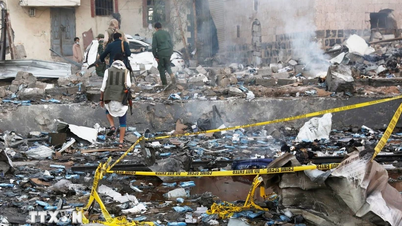

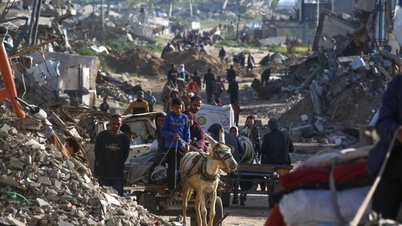

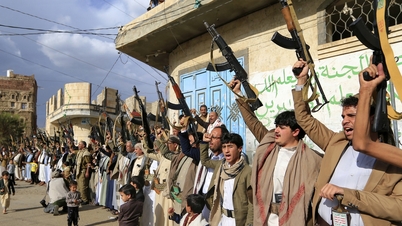

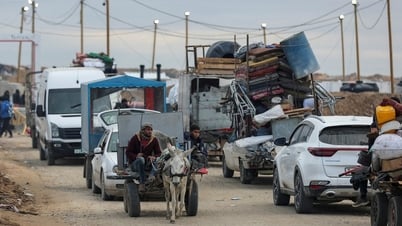
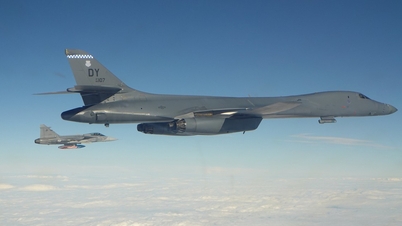
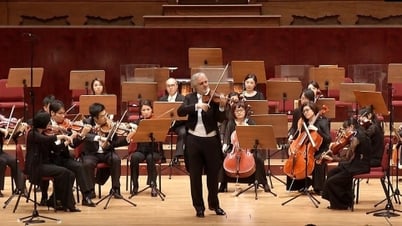



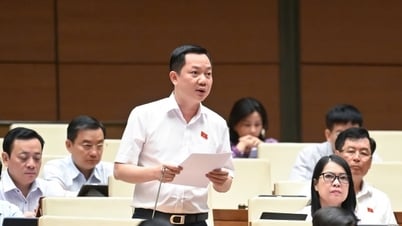
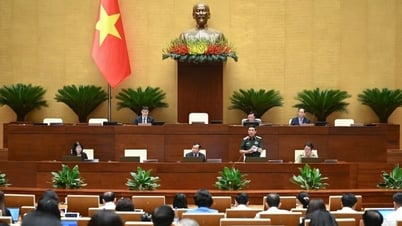
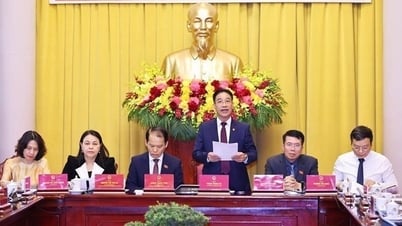




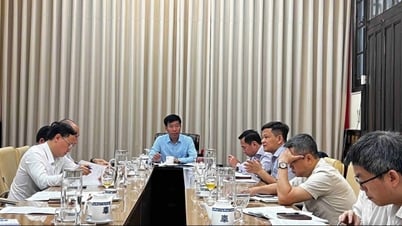
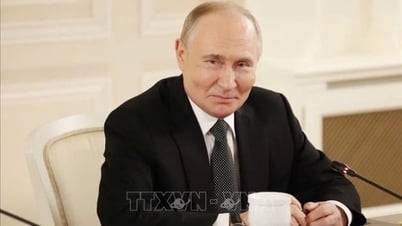


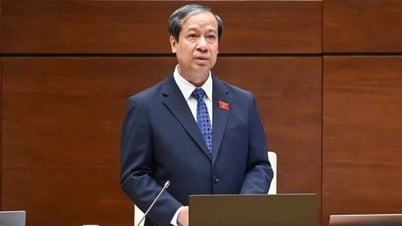
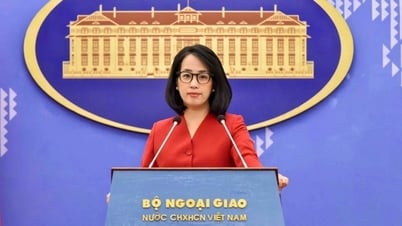
































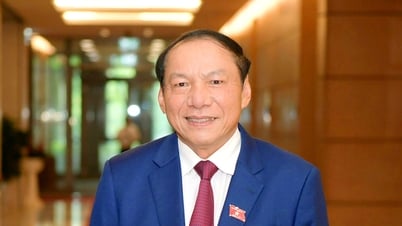







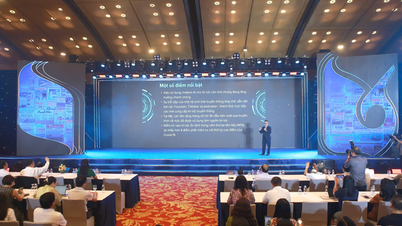















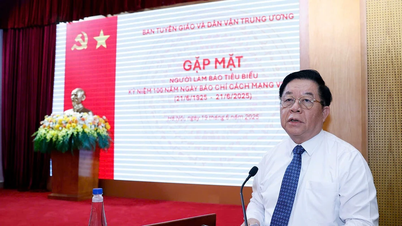

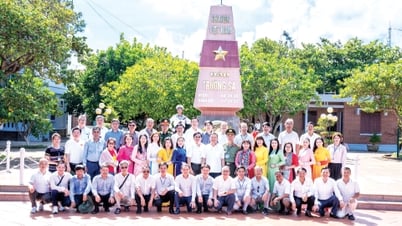











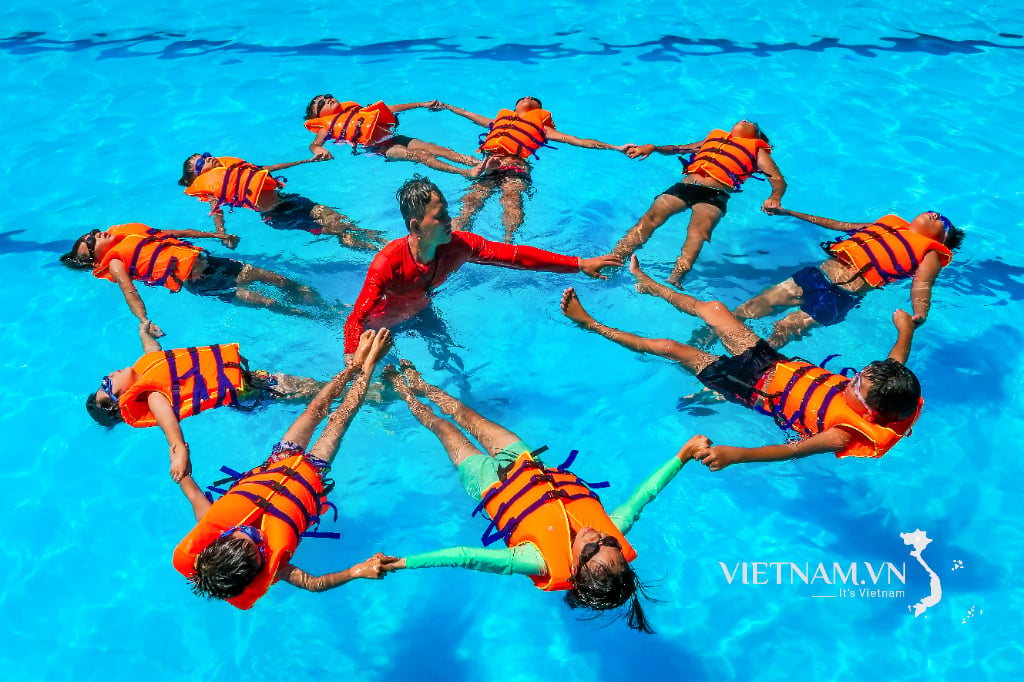
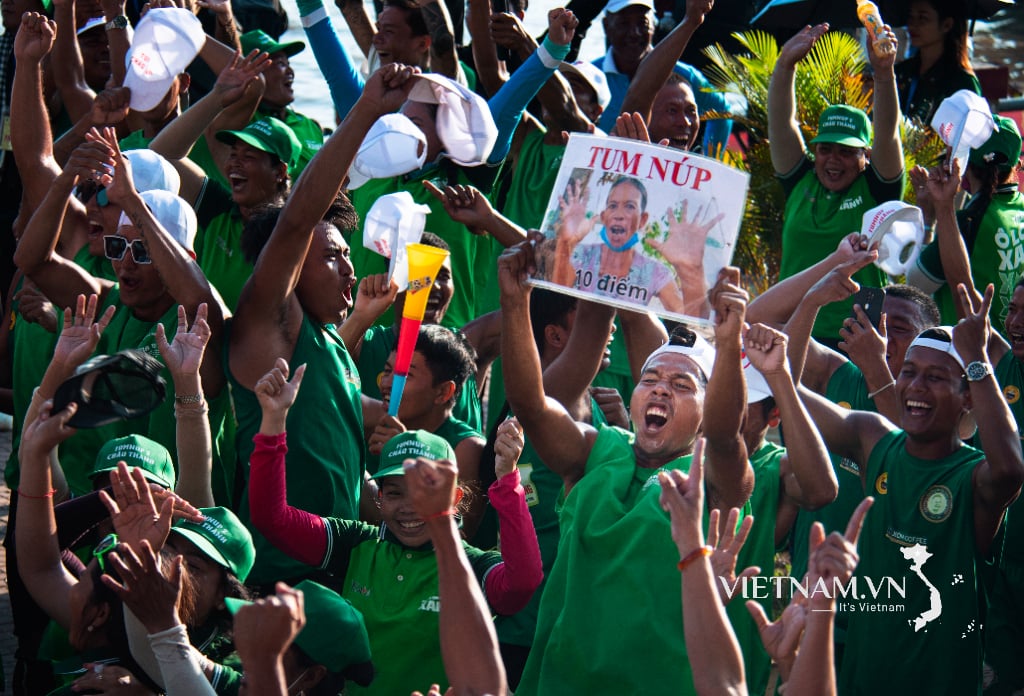
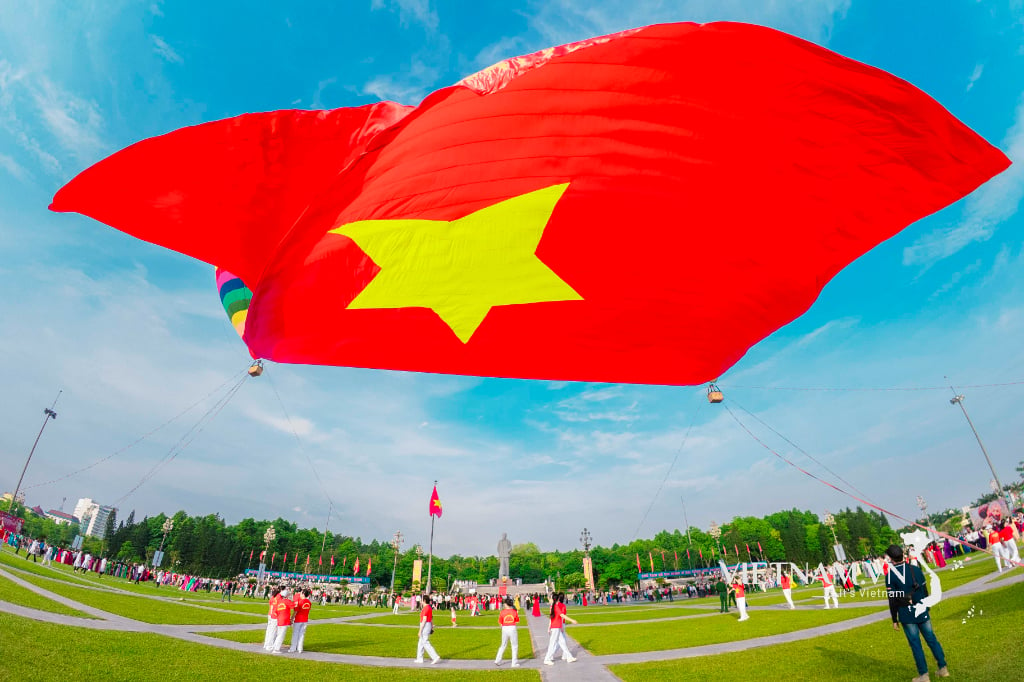

Comment (0)